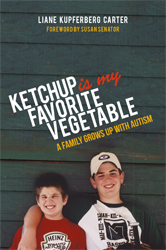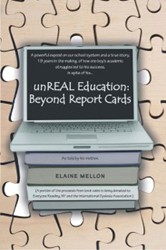Following her posts on recognizing the sensory overload of celebrating Purim and setting a place for special needs at the seder table, this week Liane Kupferberg Carter continues her exclusive series on celebrating the Jewish holidays in a family with special needs as a Visiting Scribe guest contributor on The ProsenPeople.
During the Festival of Shavuot, which commemorates the giving of the Torah at Mount Sinai, Jews worldwide go to their local synagogues to hear the reading of the Ten Commandments. I follow the official set, but as the parent of a child with a disability I’ve also needed to develop my own set of directives to make me the most effective advocate I can be for my son. Here are my ten commandments for parenting a child with special needs:
1. Thou art the biggest expert on thine own child. As Dr. Spock said more than 70 years ago, “Trust yourself. You know more than you think you do.” No one loves or knows our child better than my husband and I do as his parents.
2. Thou shalt presume competence. My son Mickey is 23 and disabled, but we always assume he wants and is able to learn. We expose him to new experiences whenever we can. We never stop trying to teach him. Presuming competence doesn’t mean we think he automatically gets everything, but we know he is taking it all in, storing it, and processing it on his own timetable — and that he will surprise us with entirely appropriate and insightful comments that clearly indicate he understands.
3. Thou shalt not talk about thy child in front of him. Adults everywhere persist in doing it, and we’re sometimes guilty of it, too. But we have also learned that even when Mickey doesn’t seem to be paying attention, he is. Eye contact is not a reliable indicator: you don’t hear with your eyes!
4. Thou shalt always remember that behavior is communication. With or without spoken language, everyone uses behavior to communicate. When Mickey behaves in a way that challenges us, I remind myself that he isn’t doing it to annoy us. He can’t always find the words to explain, but he’s telling us he feels unsafe, uncomfortable, scared, or overwhelmed. Babies cry when they are wet or hungry; adults yawn when they are bored, or shout when they’re upset. Mickey’s behavior communicates frustration or discomfort; it’s our job to figure out what he’s telling us.
5. Thou shalt not covet someone else’s neurotypical child. This one took me years. When I tuned out what typical kids his age did, I was able to see how much progress Mickey was making. He delights us every day, and I don’t take any of his hard-won milestones for granted. I want for Mickey the same things I want for his brother Jon: to live the most satisfying, independent lives they can, with loving friends, good health, and work that is meaningful to them.
6. Thou shalt accept that ketchup may indeed be a vegetable. Mickey has sensory issues. It’s hard for him to distinguish good flavors when he can’t get past disturbing textures. Lettuce repulses him; carrots make him gag. “Ketchup is my favorite vegetable,” he will tell you, and it’s the only “vegetable” he’ll eat. He also can’t tolerate crowds or loud music. He hates footwear of any kind. While I won’t let him go out wearing shorts in January as he wants to, I’ve also learned that just because I’m cold doesn’t mean he has to put on a sweatshirt. I respect that his sensory system isn’t mine. We’re wired differently. I’m a PC; he’s a Mac. As the Internet meme says: “Autism is not a processing error. It’s a different operating system.”
7. Honor thy fellow autism parents. They are a lifeline. Treasure them. They will validate your feelings, and support you when you are down. They are the ones who really, truly get it.
8. Thou shalt pay attention to the needs of thy nondisabled children. A child’s disability can take over the emotional life of the entire family. Your disabled child may require more of your time, but not more of your love. Make sure to give your other children as much attention as you possibly can.
9. Thou shalt keep thy sense of humor. Do I really need to explain this one? Laughter is rich and restorative. It fosters resilience.
10. Thou shalt take care of thyself. A study of cortisol levels published in the Journal of Autism and Developmental Disorders in 2010 found that mothers of adolescents and adults with autism experience chronic stress levels comparable to that of combat soldiers. I’m no good to my kids if I don’t stay healthy and strong. I’ve learned to ask for help when I need it. Because as all special needs parents know, we need to live forever.
Liane Kupferberg Carter is a nationally-known writer and advocate for the autism community and a co-author of the Autism Speaks Advocacy Took Kit. She is currently touring for the 2016 – 2017 season on her memoir Ketchup Is My Favorite Vegetable through the JBC Network.
Related Content:
- Tom Fields-Meyer: The Jewish Message
- Jennifer Rosner: A Gene Mutation and the Power of String
- Internal Dialogue: Book Programs and Community Partnerships
Liane is a nationally-known writer and advocate for the autism community. Her work has appeared in numerous publications, including The New York Times, the Chicago Tribune, The Huffington Post, Tikkun, Kveller, and Parents Magazine. She is a co-author of the Autism Speaks Advocacy Took Kit.




